Marketing automation is becoming essential for businesses to nurture customer relationships and boost engagement.
According to Salesforce research, companies using marketing automation experience a 10% or more increase in sales productivity.
Recent studies by Salesforce show targeted emails sent via marketing automation result in a 760% increase in email engagement over generic mailings. Automated lead nurturing generates a 20% increase in sales opportunities versus non-nurtured leads.
Powerful marketing automation platforms allow creating personalized journeys tailored to each customer's interests and behavior. Tools like email builders, landing page editors, CRM integrations and analytics enable sending the right content at the right time to large audiences.
According to Insider Intelligence, global spending on marketing automation software is projected to reach $25.1 billion by 2023. With the ability to track customer interactions and automate repetitive tasks, marketing automation drives higher ROI compared to traditional outbound sales tactics.
Thoughtfully combining automation with human touchpoints is key to success. With the right strategy, marketing automation elevates engagement across the customer lifecycle from acquisition to retention.
So continue reading to know more about boosting customer engagement through marketing automation.
What is Marketing Automation?
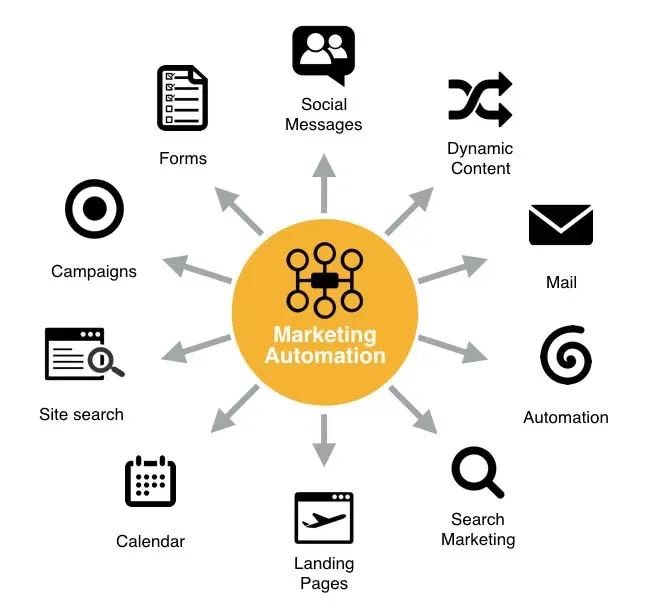
Marketing automation enables businesses to automate repetitive tasks such as email campaigns, social media posting, lead nurturing, and customer segmentation.
With marketing automation, businesses can effectively reach out to their customers, provide them with relevant and targeted information, and deliver a personalized experience throughout the customer journey.
Importance of Customer Engagement in Modern Marketing Strategies
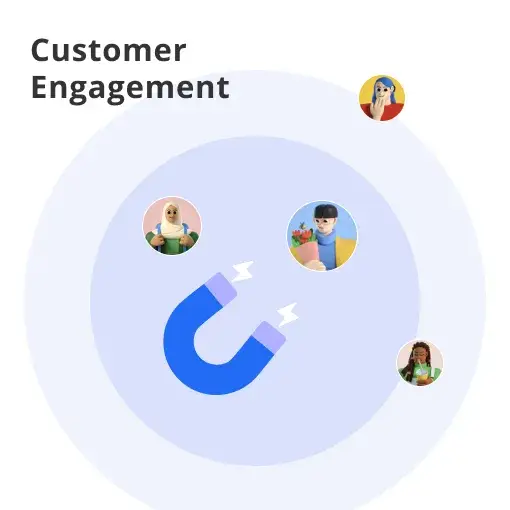
Customer engagement is paramount for marketing success. With consumers facing endless choices, brands must deliver value and experiences that deeply resonate to earn loyalty.
- Engagement is especially crucial, considering 91% of unhappy customers will simply switch to a competitor, according to SuperOffice.
- Effective engagement starts with intimately understanding your audience. Leverage data and research to shape targeted messaging and campaigns that cater to customers' needs. Meet them where they already are - on the platforms and channels they use daily.
- Social media is key, but expand efforts across your site, email, online communities and more. Provide relevant, personalized content that nurtures each individual. Make engaging easy through seamless omnichannel experiences.
- Monitor engagement metrics and optimize approaches continually. Remember, engaged customers spend more - as much as 60% more with brands they have relationships with, according to Forbes.
However, engagement is a moving target, so continually assess strategies against changing behaviors and expectations.
In our crowded digital ecosystem, distinction comes from connection. The most successful modern marketers don't just acquire customers - they actively listen, nurture, and engage throughout the lifecycle.
This loyalty-building engagement is the strongest competitive advantage your marketing strategy can have.
How does Marketing Automation Help Boost Customer Engagement?
Marketing automation has revolutionized how businesses engage with their customers, enabling them to streamline interactions and deliver personalized experiences at scale.
By utilizing automation tools, businesses can effectively nurture customer relationships, track behavior, and provide targeted communication.
In this section, we will explore how marketing automation helps boost customer engagement.
Automation Tools to Streamline Customer Interactions
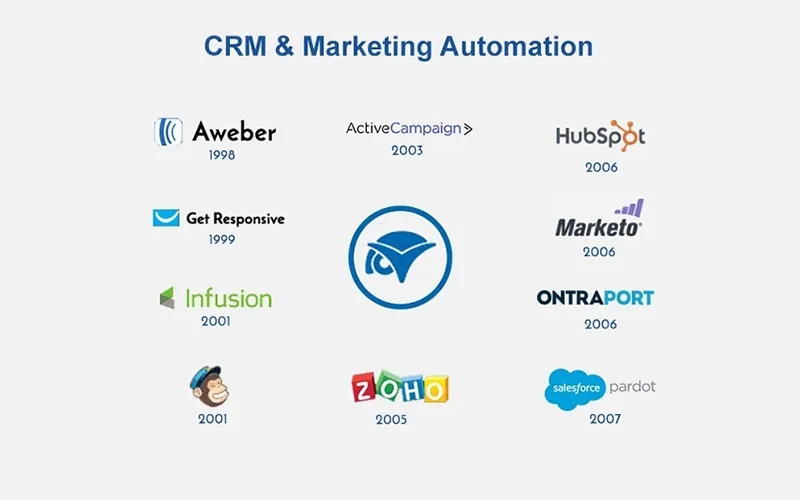
Marketing automation platforms offer many tools and features that streamline customer interactions.
These tools include automated email campaigns, social media scheduling, personalized landing pages, and chatbots.
With marketing automation, businesses can automate repetitive tasks, ensuring consistent and timely customer engagement.
Personalization and Customization Through Marketing Automation
Personalization is key to engaging customers effectively. Marketing automation enables businesses to tailor messages and content based on customer data and preferences.
By collecting and analyzing customer information such as demographics, purchase behavior, and browsing history, businesses can deliver personalized experiences that resonate with each customer.
Tracking Customer Behavior and Preferences
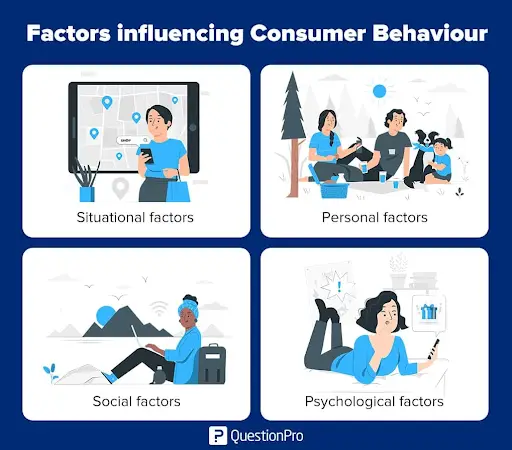
Marketing automation platforms allow businesses to track and analyze customer behavior and preferences.
By monitoring engagement metrics such as email open rates, click-through rates, and website interactions, businesses can gain valuable insights into customer interests and preferences.
This data can then be used to refine marketing strategies and deliver more targeted and relevant communication.
Implementing Marketing Automation for Customer Engagement
Now that we understand the benefits of marketing automation for customer engagement let's explore how businesses can effectively implement these tools to drive customer engagement.
Designing Targeted Campaigns Using Collected Data
Marketing automation relies on data collection and analysis to deliver personalized and targeted campaigns.
Businesses should leverage the data collected from customer interactions to design campaigns tailored to specific segments or individual preferences.
By creating relevant and customized content, businesses can increase customer engagement and drive conversions.
Integrating Marketing Automation Tools with CRM Systems
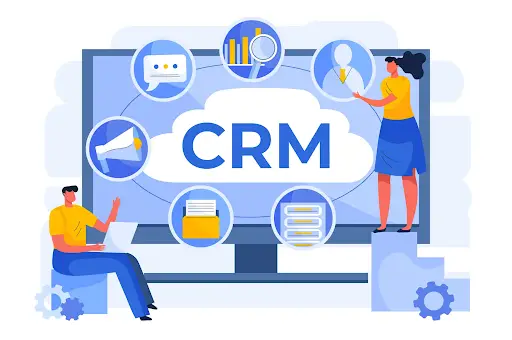
Integrating marketing automation tools with Customer Relationship Management (CRM) systems allows businesses to centralize customer data and streamline team communication.
With this integration, businesses can enhance customer engagement by providing a seamless and consistent experience throughout the customer lifecycle.
Sales, marketing, and customer support teams can access the same customer data, allowing personalized and informed interactions.
And, you can make the whole process more effective by using a CRM integrated Chatbot.
For example, BotPenguin a free custom chatbot development platform aces in providing CRM integrations that include popular CRM platforms like ZOHO, Hubspot, Salesforce, Insightly, and many more.
Best Practices for Effective Customer Engagement with Marketing Automation
Marketing automation is a powerful tool for engaging customers and building strong relationships.
To make the most of marketing automation, businesses must follow best practices that maximize customer engagement.
In this section, we will explore some key best practices for effective customer engagement with marketing automation.
Crafting Relevant and Valuable Content
To effectively engage customers, businesses must create relevant, valuable content that addresses their needs and pain points. Use customer data to understand their preferences and interests, then tailor your content accordingly.
Businesses can capture customer attention and establish trust by delivering personalized and valuable content.
Suggested Reading:
Maximizing ROI with BotPenguin's Marketing Automation Chatbot
Segmenting Customers for Personalized Campaigns
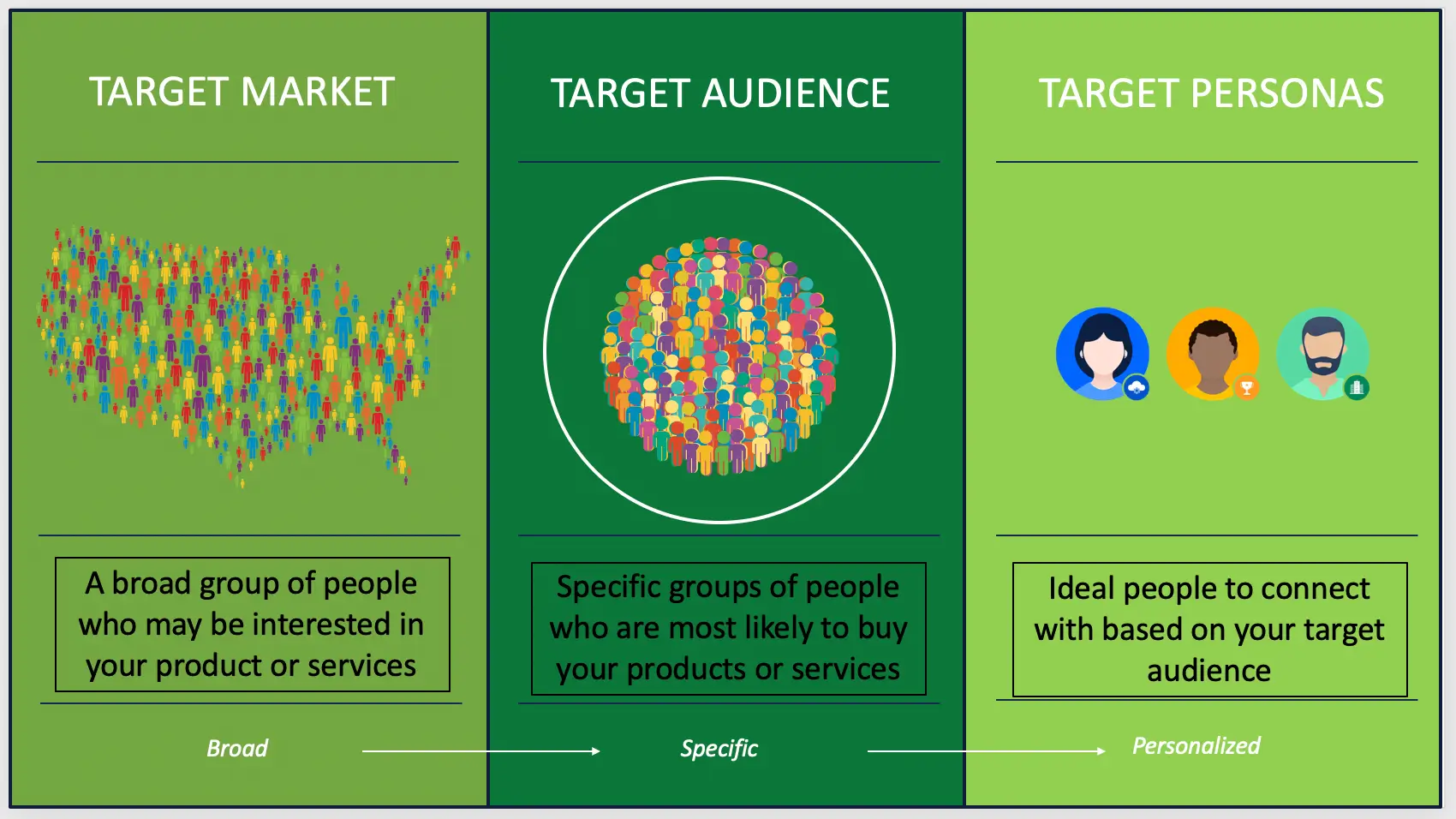
Segmentation is a critical practice for effective customer engagement.
By dividing your customer base into specific segments based on characteristics such as demographics, interests, or purchasing behavior, businesses can deliver targeted and personalized campaigns.
Marketing automation platforms provide tools to segment customers easily, allowing businesses to send tailored messages that resonate with each segment.
Utilizing Automated Email Workflows for Onboarding and Nurturing
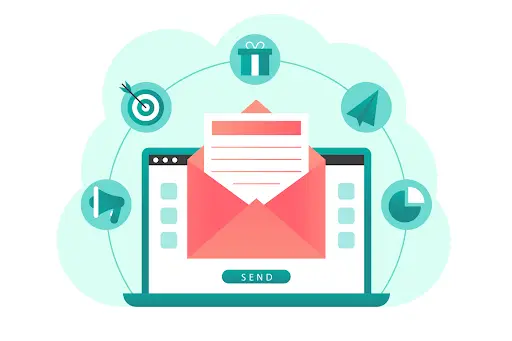
Email marketing remains one of the most effective channels for customer engagement.
Leveraging marketing automation, businesses can create automated email workflows that guide customers through their journey. For new customers, automated onboarding emails can provide a warm welcome and introduce them to key features or resources.
For leads, automated nurturing emails can deliver useful content and gradually build trust. By automating these workflows, businesses can provide a consistent and engaging experience to their customers.
Suggested Reading:
Unlocking the Power of Drip Campaigns in Marketing Automation
Measuring Customer Engagement and Success of Marketing Automation
Measuring customer engagement is crucial for evaluating the effectiveness of marketing automation strategies.
By monitoring key metrics and analyzing campaign performance, businesses can make data-driven decisions to improve engagement.
In this section, we will explore some important metrics to track customer engagement and methods to measure the success of marketing automation.
Key Metrics to Track Customer Engagement
There are several metrics businesses can track to measure customer engagement. Some important metrics include:
- Open rates: The percentage of recipients who open your emails.
- Click-through rates: The percentage of recipients who click on a link in your email.
- Conversion rates: The percentage of recipients who complete a desired action, such as purchasing or filling out a form.
- Bounce rates: The percentage of emails not successfully delivered to recipients.
- Unsubscribe rates: The percentage of recipients who choose to unsubscribe from your emails.
By monitoring these metrics, businesses can gain insights into the engagement levels of their customers and identify areas for improvement.
Analyzing Campaign Performance and Making Improvements
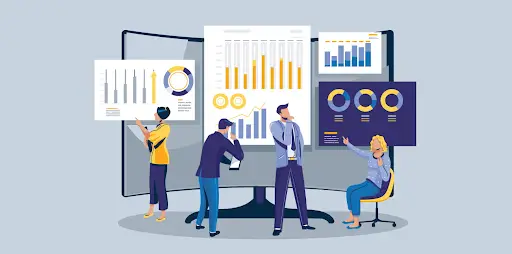
Once you have tracked customer engagement metrics, it's essential to analyze campaign performance and make data-driven improvements.
Look for patterns and trends in the data to understand what resonates with your customers and what needs adjustment.
Experiment with different subject lines, content formats, and calls to action to optimize your campaigns. Review and refine your marketing automation workflows to ensure they deliver the desired results.
Conclusion
In an increasingly competitive landscape, lean marketing teams need automation to create personalized experiences that convert across channels.
Trailblazing brands are already using triggers and AI to deliver the right message at the right time to each lead and customer. Their success proves automation provides the missing piece for next-level engagement.
As BotPenguin enables through its marketing bots, automation combines the benefits of personalization with scalability, nurturing each individual at scale. Messages feel tailored, not robotic. The result - deeper brand connections, greater loyalty, and reduced churn.
Looking ahead, with spending expected to top $25 billion by 2023, automation will soon be a requirement, not a bonus. Forward-thinking companies embrace it now to get ahead.
For marketing powered by insight into customer behaviors, the research conclusively shows that when automation is done right, the possibilities are endless.
Suggested Reading:
How to Grow Your Business Using WhatsApp Marketing Automation
Frequently Asked Questions (FAQs)
What are the key benefits of implementing marketing automation for customer engagement?
Marketing automation can streamline processes, improve efficiency, and deliver personalized experiences, increasing customer satisfaction and loyalty.
How can businesses use marketing automation to improve customer targeting?
By utilizing customer data and behavior tracking, businesses can create targeted campaigns that resonate with specific customer segments, enhancing engagement and conversion rates.
What are some effective strategies for using marketing automation to nurture leads?
Automated lead nurturing through tailored content, personalized follow-ups, and timely responses can build trust, keep leads engaged, and increase the likelihood of conversions.
How does marketing automation contribute to creating a seamless customer experience across different channels?
Through integrated automation, businesses can ensure consistent messaging and a unified brand experience, fostering stronger connections with customers across various platforms.
How can businesses use automated email marketing to enhance customer engagement?
Automated email campaigns can deliver targeted content, personalized recommendations, and timely updates, effectively nurturing customer relationships and driving engagement.


